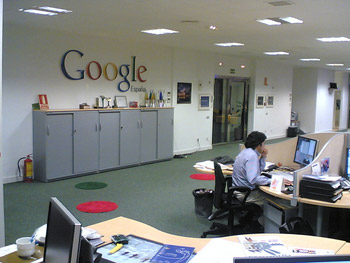Google will develop MySQL

MySQL AB has unveiled a development plan for its database system of the same name until 2009. According to the developers, in 2009 we can expect the appearance of the 7th version of this DBMS. In addition, the company reports that the Internet giant Google has taken on help in developing MySQL and in version 7 you can see a lot of code created by Mountain View programmers.
Today, MySQL is the most common database on the Internet. For users who do not require technical support MySQL is free. In the past one and a half to two years, MySQL AB has been actively promoting its development in corporate sectors, where Oracle, IBM and Microsoft traditionally ruled the ball.
In the first half of 2007, Google and MySQL signed the Contributor License Agreement, according to which MySQL will include code produced by other companies in the DBMS, said MySQL Vice President David Axmark.
Officially, Google does not provide information about where and how MySQL is used in the company, however, according to unofficial data, Google is considered one of the largest users of this product in the world and up to several thousand copies of MySQL work in the company's infrastructure.
Today, Google is already actively engaged in software tuning of MySQL, using a modified version for its internal needs, such as database replication, information monitoring, data retrieval, etc. By agreement of Google-MySQL, the first will publish all of these developments or most of them in the upcoming MySQL 6 release, scheduled for release in late 2008.
According to David Axmark, Google will also receive some benefits from the publication of these developments. Firstly, official bug fixes will be released for them, and secondly, these developments will be developed by a wide range of DBMS users.
Another highlight of MySQL 6 is the new Falcon storage engine, which will become standard in future versions. Falcon is to replace InnoDB, which Oracle has acquired.
Falcon will support fast disaster recovery, rollback segments, and full-text indexing. Performance is also declared no lower than the InnoDB mechanism.
As noted by Kai Arnaud, vice president of MySQL for Community Development, the upcoming year Google and MySQL will be needed in order to analyze the codes, make sure that they comply with the overall system development program, and also include them in the distribution so that it turns out seamless monolithic system. “This work has great potential, but there is still a lot to do,” says Arno.
In addition, it is known that Google is a supporter of the open Linux OS, so all Google’s development for MySQL is actually Linux-oriented. MySQL comes out for 15 operating systems, so the codes must also be ported.
Axmark also said that today the list of new functions for MySQL 6.0 has already been approved, so all Google development will appear in version 6.1, which will appear at the very beginning of 2009.
As for MySQL 7, Google code will also be present here, however, this version will be almost entirely focused on corporate use and features arising from this, as well as on security. In particular, in MySQL 7, the concepts of user groups and roles will appear (approximately similar to the Oracle DBMS). At the DBMS kernel level, data encryption will appear.
In the near future, MySQL AB intends to release version 5.1 for production use, where the data storage and indexing mechanism will be slightly revised, which will increase the database performance.
A source
